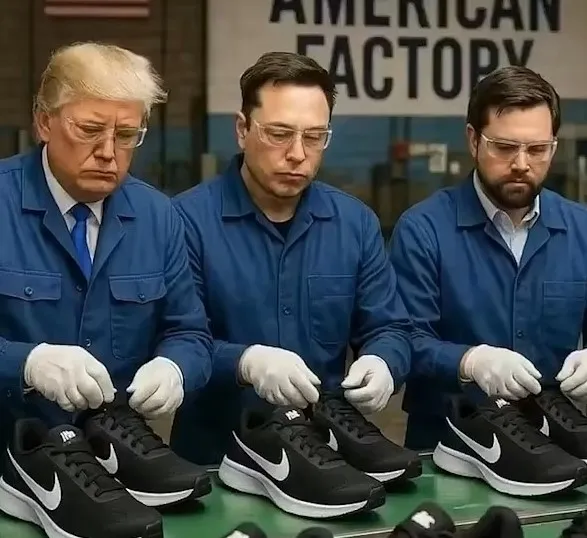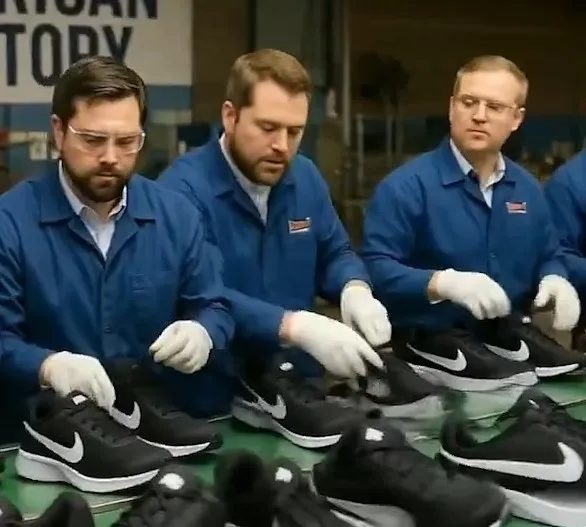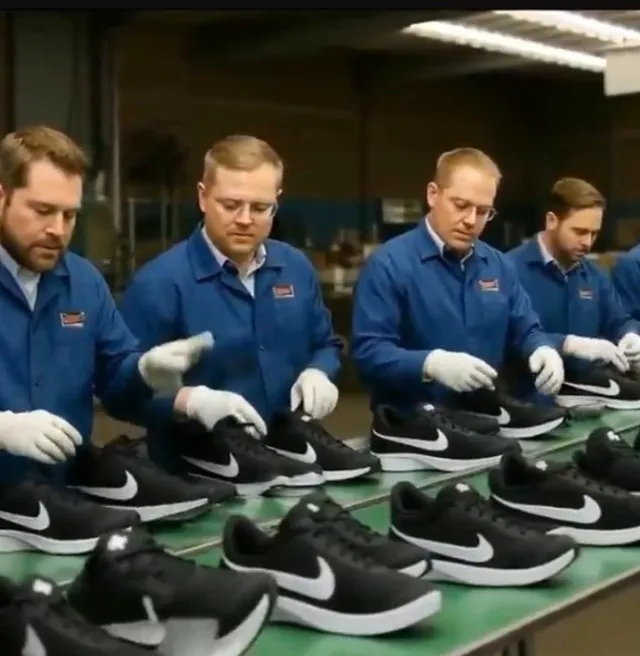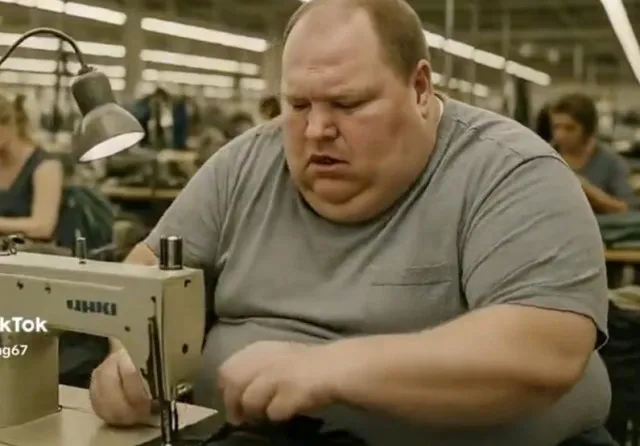Trump and Elon Musk appear as factory workers in a viral Chinese AI video, as Beijing escalates tensions with memes.
In recent days, China has intensified its mockery of President Donald Trump amid an ongoing trade war.
With the introduction of new tariffs, tensions between the U.S. and China have escalated.
This situation has prompted a wave of humorous memes and videos aimed at Trump and his administration.
China mocks Trump and Musk with AI video showing them as factory workers in response to new tariffs
One notable development is the release of AI-generated videos that portray Trump and prominent figures like Elon Musk as factory workers.
These videos have gone viral and are part of a broader strategy by Chinese social media users to ridicule the U.S. government’s manufacturing revival efforts.

The videos depict the leaders working on assembly lines, poking fun at the idea that manufacturing jobs can simply return to American soil.
Chinese officials have joined in the ridicule. A spokesperson for China’s foreign ministry shared memes indicating the increased prices of products due to the tariffs.
The memes feature MAGA hats with inflated prices, emphasizing how tariffs affect American consumers.
This tactic aims to showcase the negative consequences of Trump’s policies while also stirring public sentiment in China.
“We are Chinese. We are not afraid of provocations. And we don’t back down,” Mao Ning, spokesperson for the foreign ministry, said.

Trump tariffs and their impact on the economy
Trump’s tariffs have not only targeted China but have also affected many other countries.
Recently, the U.S. announced a 125% tariff on certain Chinese imports. This move has raised concerns among businesses and consumers alike.
Many fear that the increasing costs will lead to higher prices for everyday items, including shoes and electronics.
As a result of these tariffs, experts predict that consumer goods will become more expensive.
Currently, a large percentage of shoes sold in the U.S. are imported from China, which makes the tariffs particularly impactful for American shoppers.
Many small businesses are also feeling the pinch, as they struggle to absorb the extra costs imposed by the tariffs.

‘These are ridiculous tariffs that make no sense.’
‘Small businesses like mine have to pay these tariffs, and it’s not a small thing. It’s a lot. So there’s no way to see this as something that’s good — for anybody.
‘And it’s all unnecessary,’ Devlin Carter, the founder of luxury firm SIA collective, said.
Global reactions to the trade war
While China has taken a confrontational stance, other countries are reacting differently. Many nations are relieved as they face less severe tariffs from the U.S.
Some markets have seen positive movements in response to the U.S. temporarily pausing tariff increases.
This has led to a surge in global stock markets, with many investors welcoming the news.

Despite this temporary relief, concerns remain about the long-term effects of the trade war.
Economists warn that continued tension between the U.S. and China could create instability in the global market.
Businesses are uncertain about future trade policies, which may hinder investment and economic growth.
The role of social media in the trade war
Social media has played a significant role in shaping public perception of the trade war.
The use of memes and humorous content has become a tool for both ridicule and commentary.
In China, users have created various AI-generated videos that highlight the absurdities they see in U.S. trade policies.
These videos often depict life in a re-industrialized America, showing factory workers in an unflattering light.

One viral video features a cartoon penguin wearing a “Make America Go Away” hat, which has garnered millions of views.
This approach not only entertains but also serves as a form of protest against the tariffs.
The Chinese media has embraced this trend, using humor to engage with audiences and criticize U.S. policies.